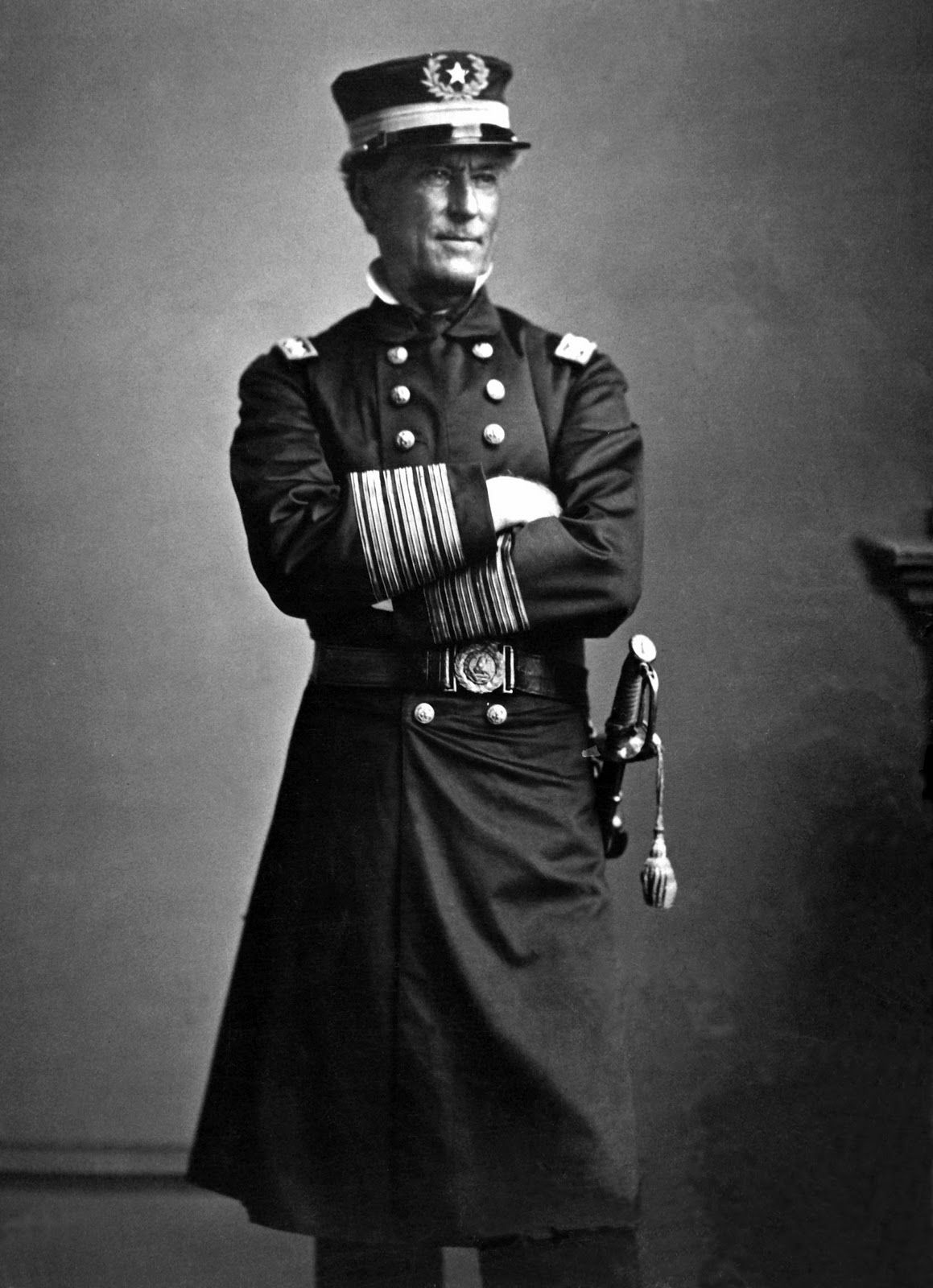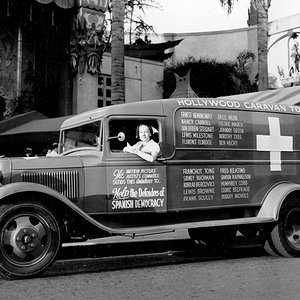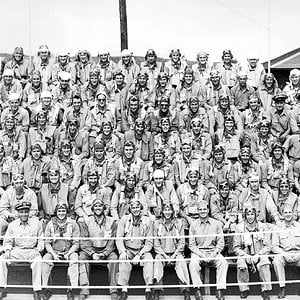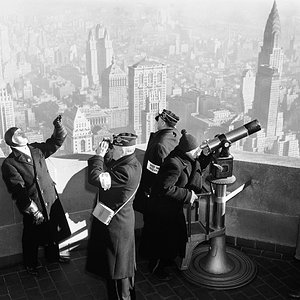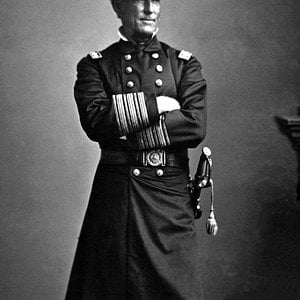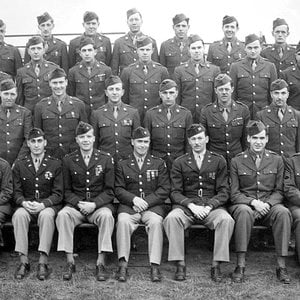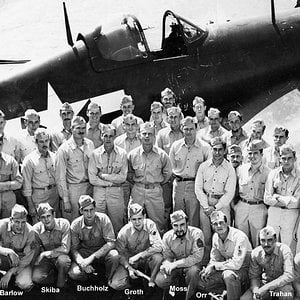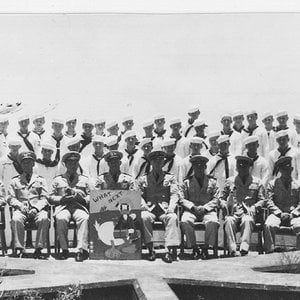Navigation
Install the app
How to install the app on iOS
Follow along with the video below to see how to install our site as a web app on your home screen.
Note: This feature may not be available in some browsers.
More options
You are using an out of date browser. It may not display this or other websites correctly.
You should upgrade or use an alternative browser.
You should upgrade or use an alternative browser.
his is a great expression and actually dates to the Civil War but the meaning of the word "torpedo" has changed from then to now. These words were shouted by Admiral David Farragut on the morning of 5 August 1864. Under his command, a large fleet of Union ships was running the gauntlet of fire from the Confederate defenses of Mobile Bay as part of a multi-pronged strategy to seize Mobile, by then one of the last two remaining ports in the Confederacy which could be used by Confederate blockade runners. (Wilmington, NC was the other.) Rhett Butler's occupation in Gone With The Wind is captain of a blockade runner. Blockade runners were privately owned and were typically joint-stock enterprises with various wealthy men owning shares in a number of "runners."
While one could make a great deal of money doing this, the entire enterprise was heavily regulated by the Confederate government, which had purchasing commissions and agents in such places as Havana, Cuba. This was a major port for discharging cargo purchased by the Confederacy abroad and was safe from attack by the Union since Cuba was under the rule of Spain which was neutral. As the cargo piled up in Havana, it was loaded aboard the blockade runners with at least 3/4 of the cargo space being taken by the Confederate government. Cargo was loaded according to priorities cabled to the purchasing agent from Richmond. For instance, waiting in warehouses in Havana might be muskets, shoes, uniforms, food, ammunition, etc and the agent might be told to load only uniforms and ammunition since those items were needed at that moment more than the others.
The remaining cargo space was filled with all manner of delicacies unavailable in the Confederacy which included everything from perfume to fine wines to fashionable new material for clothing. Each crewman also received a bit of space on the cargo decks, the amount depending on such variables as your rank, length of service, etc.
+
SS Banshee, a Confederate Blockade Runner
So desperate was the South for anything resembling a delicacy that even a common sailor could make good money on his own cargo which he had to buy at his own expense. Lots of young men volunteered to serve on blockade runners so there was never a shortage of crewmen. The ships were typically small, very fast, and always unarmed.
Because this trade was helping to sustain the Confederacy, it was imperative for the Union to capture both of these ports and cut the Confederacy off from any outside supplies. While we think of Johnny Reb as being barefoot and in a tattered uniform, often homemade, in the last years of the war the reverse was true. In the beginning of the war there was a huge shortage of uniforms, muskets, boots, etc and the Confederate soldiers did look ragtag. But as the system of blockade running got organized, and the Confederacy sold bonds abroad and raised cash, large amounts of cargo began coming in from overseas and by late 1863 most Confederate soldiers had complete government issued uniforms, new boots, shirts, etc. Of particular note, the Confederacy was able to import more than enough muskets and ammunition to stay in the war.
So Admiral Farragut, a very tough customer, was given the job of seizing Mobile. I won't go through the details of the battle. For purposes of explaining this great battle cry, suffice it to say that on the morning of 5 August 1864, one of the items the Confederates were using to protect Mobile Bay from being attacked were underwater mines. These mines were attached to the shallow bottom by chains and floated just beneath the surface of the water. These were not complex weapons, most being made of water proofed wooden barrels stuffed with gunpowder with detonators set atop. If a ship hit one, the mine could blow a hole in the ship and sink it. So these mines were dangerous; and there was a minefield that the Union ships had to get through, of which they were aware. What is confusing is this: everyone in that era referred to mines as "torpedoes."
+
Admiral David Farragut (left) onboard the USS Hartford
Given the geography, Farragut was forced to come into the bay with his ships in a single file column. The USS Brooklyn was ahead of Farragut's flagship, the USS Hartford. Both ships were taking punishing fire from the Confederate batteries in the different forts the Southerners had built. The captain of the USS Brooklyn thought he saw mines, that is "torpedoes" in the water, although there weren't any "torpedoes" or mines in that part of the channel. Nonetheless, he ordered full astern and backed down toward USS Hartford which had to squeeze around the Brooklyn to avoid a collision. Men on the deck of the Brooklyn shouted warnings about the mines or "torpedoes" ahead to those aboard the Hartford. Farragut, who had tied himself into the fore rigging of his flagship about twenty feet above deck, heard this and was greatly annoyed. The attack was in danger of faltering. "Damn the torpedoes," Farragut bellowed, "full speed ahead!" And as often happens in battle and in life, Fortune Favors the Bold and Admiral Farragut will forever be known for his victory in the Battle of Mobile Bay in which he wrestled from the Confederates in a battle of great ferocity.
While one could make a great deal of money doing this, the entire enterprise was heavily regulated by the Confederate government, which had purchasing commissions and agents in such places as Havana, Cuba. This was a major port for discharging cargo purchased by the Confederacy abroad and was safe from attack by the Union since Cuba was under the rule of Spain which was neutral. As the cargo piled up in Havana, it was loaded aboard the blockade runners with at least 3/4 of the cargo space being taken by the Confederate government. Cargo was loaded according to priorities cabled to the purchasing agent from Richmond. For instance, waiting in warehouses in Havana might be muskets, shoes, uniforms, food, ammunition, etc and the agent might be told to load only uniforms and ammunition since those items were needed at that moment more than the others.
The remaining cargo space was filled with all manner of delicacies unavailable in the Confederacy which included everything from perfume to fine wines to fashionable new material for clothing. Each crewman also received a bit of space on the cargo decks, the amount depending on such variables as your rank, length of service, etc.
+
SS Banshee, a Confederate Blockade Runner
So desperate was the South for anything resembling a delicacy that even a common sailor could make good money on his own cargo which he had to buy at his own expense. Lots of young men volunteered to serve on blockade runners so there was never a shortage of crewmen. The ships were typically small, very fast, and always unarmed.
Because this trade was helping to sustain the Confederacy, it was imperative for the Union to capture both of these ports and cut the Confederacy off from any outside supplies. While we think of Johnny Reb as being barefoot and in a tattered uniform, often homemade, in the last years of the war the reverse was true. In the beginning of the war there was a huge shortage of uniforms, muskets, boots, etc and the Confederate soldiers did look ragtag. But as the system of blockade running got organized, and the Confederacy sold bonds abroad and raised cash, large amounts of cargo began coming in from overseas and by late 1863 most Confederate soldiers had complete government issued uniforms, new boots, shirts, etc. Of particular note, the Confederacy was able to import more than enough muskets and ammunition to stay in the war.
So Admiral Farragut, a very tough customer, was given the job of seizing Mobile. I won't go through the details of the battle. For purposes of explaining this great battle cry, suffice it to say that on the morning of 5 August 1864, one of the items the Confederates were using to protect Mobile Bay from being attacked were underwater mines. These mines were attached to the shallow bottom by chains and floated just beneath the surface of the water. These were not complex weapons, most being made of water proofed wooden barrels stuffed with gunpowder with detonators set atop. If a ship hit one, the mine could blow a hole in the ship and sink it. So these mines were dangerous; and there was a minefield that the Union ships had to get through, of which they were aware. What is confusing is this: everyone in that era referred to mines as "torpedoes."
+
Admiral David Farragut (left) onboard the USS Hartford
Given the geography, Farragut was forced to come into the bay with his ships in a single file column. The USS Brooklyn was ahead of Farragut's flagship, the USS Hartford. Both ships were taking punishing fire from the Confederate batteries in the different forts the Southerners had built. The captain of the USS Brooklyn thought he saw mines, that is "torpedoes" in the water, although there weren't any "torpedoes" or mines in that part of the channel. Nonetheless, he ordered full astern and backed down toward USS Hartford which had to squeeze around the Brooklyn to avoid a collision. Men on the deck of the Brooklyn shouted warnings about the mines or "torpedoes" ahead to those aboard the Hartford. Farragut, who had tied himself into the fore rigging of his flagship about twenty feet above deck, heard this and was greatly annoyed. The attack was in danger of faltering. "Damn the torpedoes," Farragut bellowed, "full speed ahead!" And as often happens in battle and in life, Fortune Favors the Bold and Admiral Farragut will forever be known for his victory in the Battle of Mobile Bay in which he wrestled from the Confederates in a battle of great ferocity.

